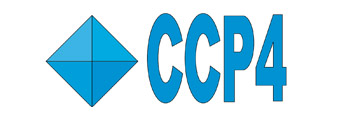


This year the CCP4 Study Weekend will be held as a hybrid event from the 3rd – 5th January, enabling people to choose whether to attend in-person or virtually.
The event will be run over 3 days. Day 1 will encompass the Diamond MX User Meeting followed by a discussion panel talking and engaging with the audience with the topic “Crystallography is dead – long live Crystallography!”. The subsequent 2 days will follow the usual format with 3 sessions each day. Old favourites like “What’s New in CCP4?” and “Lunchtime Bytes” will also appear each day (see programme for more details).
A poster session will also be taking place this year on the evening of the first day allowing students to present their research to the wider crystallographic community.
***BREAKING NEWS – 2024 will also see the return of the ceilidh after the conference dinner on day 2 for all those who want to join in********
In keeping with previous CCP4 meetings, the lectures will focus on the presentation and discussion of a variety of methods and techniques developed and used by the leaders in the field.
This year, the topic for the Study Weekend is “Decision making in MX – how to be a productive structural biologist“.
Highly automated pipelines are available and used in abundance within the field of macromolecular crystallography (MX), from the time a crystal has been mounted and a diffraction experiment is to be conducted, through all steps of data collection, data processing, initial structure solution and model building, ligand fitting and model completion – right down to the final analysis, validation and deposition of a model into public or internal databases. What is the current state of those pipelines? Are all stages of a typical MX experiment and its analysis automated to the same degree – or are there still bottlenecks? What happens if some steps fail: are our current tools and methods user-friendly enough to enable novice and expert users alike to obtain a reliable model even under unfavourable conditions?
The 2024 Study Weekend will try and address these questions through discussions and presentations by experts that should highlight the benefits that a combination and cooperation of fully automated pipelines with manual interventions and fine-tuning can provide – both for the users and for the quality and reliability of the final models.
Sessions will cover:
Day 1
Diamond MX User Meeting
Session 1:
Key note talk
Discussion panel
Day 2
Session 2: Preparation and data collection: Planning and execution of diffraction experiment
Session 3: Structure Solution & Model Building (post-AlphaFold)
Session 4: The important final touches: Modelling Subtle / Difficult Structural Features
Day 3
Session 5: Weak Signal / Large Datasets: Partial Data and Partial Occupancies
Session 6: Experimental Interactions: Ligands, everywhere, all at once
Session 7: Structural Analysis: Climbing the data mountain
Speakers
Ashwin Chari (Max Planck Institute for Multidisciplinary Sciences, GERMANY)
Tristan Croll (Altos Labs, UK)
Ed Daniel (University of Oulu, FINLAND)
Judit Debreczeni (AstraZeneca, UK)
Elke de Zitter (Institut de Biologie Structurale, FRANCE)
Kamel El Omari (Diamond Light Source, UK)
Paul Emsley (UKRI-MRC LMB, UK)
Elspeth Garman (University of Oxford, UK)
Rasmus Fogh (Global Phasing Ltd, UK)
Dorothee Liebschner (Lawrence Berkeley National Laboratory, USA)
Garib Murshudov (UKRI-MRC LMB, UK)
Arwen Pearson (Center for Free-Electron Laser Science – CFEL, GERMANY)
Patrick Reinke (Deutsches Elektronen-Synchrotron, DESY, GERMANY)
Lucy Schofield (University of York, UK)
Oliver Smart (Global Phasing Ltd, UK)
Graeme Winter (Diamond Light Source, UK)
Briony Yorke (University of Leeds, UK)
Scientific Organisers:
Helen Ginn (Deutsches Elektronen-Synchrotron, DESY, Germany)
Nick Pearce (Linköping University, SciLifeLab, Sweden)
Clemens Vonrhein (Global Phasing Ltd, UK)